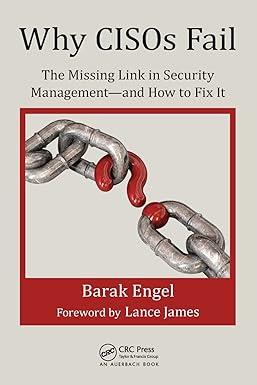Question
Please answer the below questions.I only have 1 hours before submit.Please! Questions 1. Should the Federal Government question an educational institution on its recruiting practices?
Please answer the below questions.I only have 1 hours before submit.Please!
Questions
1. Should the Federal Government question an educational institution on its recruiting practices?
2. Should the Federal Government also question State and Private Universitys retention practices?
3. Shouldnt these companies be able to operate as a business- that is- making money the aggressive way?
4. Who are the stakeholders in this situation?
What is the ethical dilemma and duty in this matter
For Profit for Education? Putting Profits over Public Good? Contd...
| For-profit colleges in the US came under increased scrutiny on several counts. This case study describes the problems faced by for-profit colleges in the US such as high loan default rates, vague accreditation standards, and low graduation and job placement rates. Complaints such as overpriced degrees, misleading claims, and increasing level of student debt resulted in the government turning its attention to the entire for-profit college sector. According to some reports, too much taxpayer money was being used to generate profits for the colleges, instead of providing students with useful high-quality education. The case also focuses on the alleged fraudulent practices adopted by for-profit colleges in the US to gain access to more federal financial aid. The Study Concerned about the disproportionate percentage of federal student aid flowing to for-profit colleges, some analysts began raising questions about the rapid growth of the for-profit education sector, the aggressive recruitment of students, and the value of the education provided by such institutions. There are strategies followed by for-profit colleges in the US to attract more students. According to a report released by US Government Accountability Office (GAO), some for-profit colleges in the US were involved in deceptive practices and had made misleading statements to prospective students which included not providing clear information about the college's graduation rate, applicant's likely salary after graduation, accreditation of the school, and the duration and costs of the programs offered by the schools. This study concludes by detailing the new regulations proposed by the federal government for the for-profit education sector in order to safeguard students from misleading recruitment practices and incurring huge debts, among other issues. This study also focus on student enrollments and the methods these colleges were adopting to attract more students. On release of the GAO report, the shares of for-profit education companies in the US, including Apollo Group Inc. (Apollo Group owner of University of Phoenix), DeVry Inc. (DeVry), Education Management Corp, and Corinthian Colleges, Inc. (Corinthian), fell significantly. "GAO's findings make it disturbingly clear that abuses in for-profit recruiting are not limited to a few rogue recruiters or even a few schools with lax oversight. |
To the contrary, the evidence points to a problem that is systemic to the for-profit industry,"9 said Tom Harkin (Harkin), Chairman, US Senate Health, Education, Labor, and Pensions (HELP) Committee.
The GAO defined for-profit colleges as "institutions of post-secondary education that are either privately owned or owned by a public traded company and whose net earnings can benefit a shareholder or individual."...
In May 2010, the GAO began its investigation of 15 for-profit schools in six states (Arizona, California, Florida, Illinois, Pennsylvania, and Texas and Washington, D.C (Refer to Exhibit III for a list of the schools probed)...
High Tuition Fee The report stated that the tuition fee at for-profit colleges was high compared to similar programs at other public colleges. Investigators found that on an average, the fee for an associate degree program was between 6 and 13 times higher at a for-profit school than at a public college while a bachelor's degree at a for-profit college cost almost twice that in local public institutions... Deceptive Recruitment and Marketing Tactics According to the report, campus officials of all 15 colleges misled potential students and made deceptive statements about their programs' cost, quality, and duration, and the average salary of graduates (Refer to Exhibit V for some examples of deceptive practices of for-profit institutions) For-profit colleges generally paid recruiters by the number of enrollments that they generated... Loan Defaults For-profit colleges, which accounted for 10% of all college students in the US as of 2009, derived three-fourth of their revenues from federal grants and loans. In 2009, at 14 for-profit schools, federal aid totaled 87% of revenue in 2009...
Step by Step Solution
There are 3 Steps involved in it
Step: 1

Get Instant Access to Expert-Tailored Solutions
See step-by-step solutions with expert insights and AI powered tools for academic success
Step: 2

Step: 3

Ace Your Homework with AI
Get the answers you need in no time with our AI-driven, step-by-step assistance
Get Started


